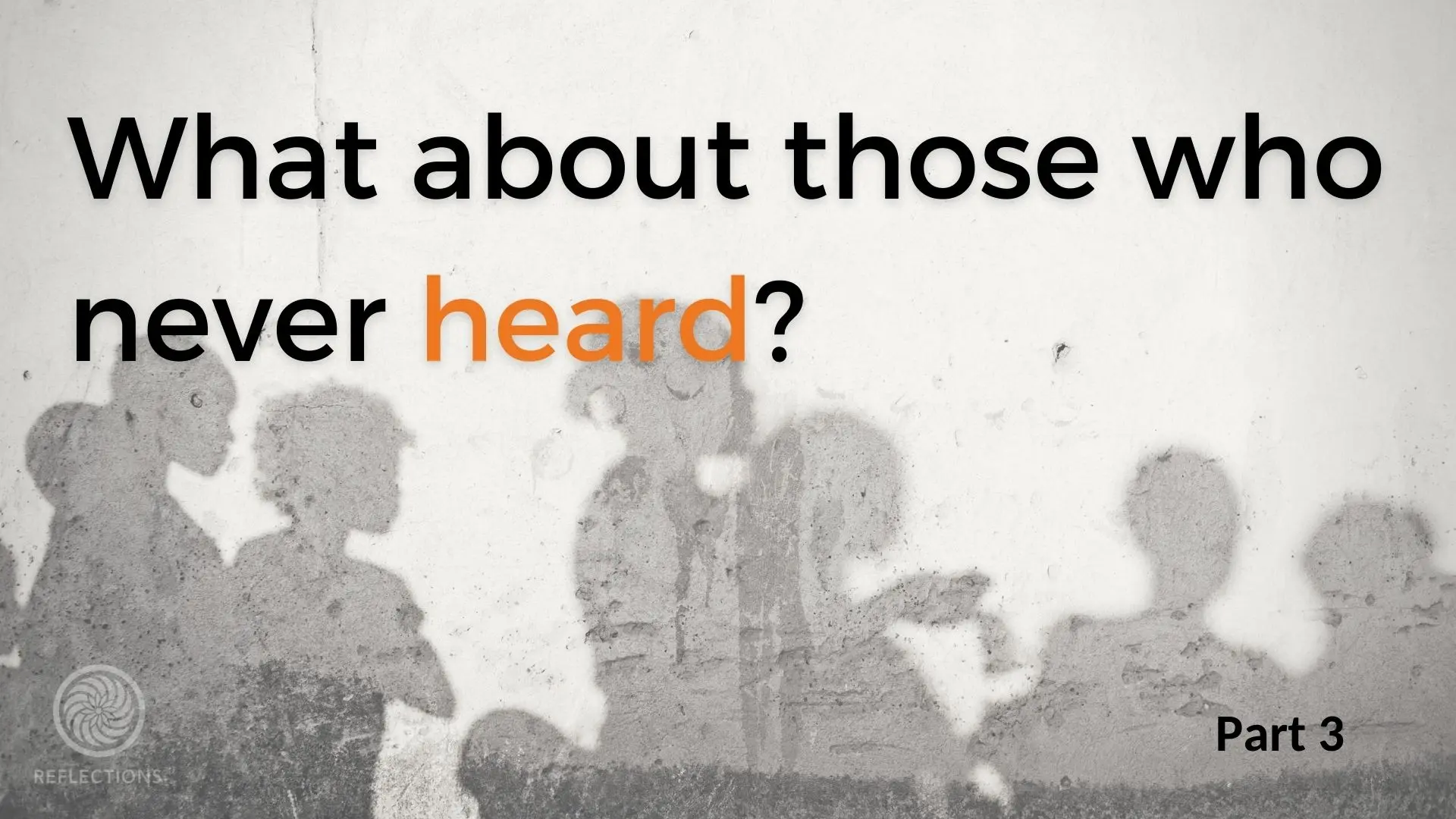The question of what happens to those who have never heard the gospel hinges on the idea of God’s justice and His grace. As we respond to this objection, we need to keep the character of God at the forefront of our conversations. God has made Himself known in part to everyone through His general revelation—by looking at nature, we can know there is a God. But despite this witness and the witness of the conscience, without God’s intervention in our hearts, we turn away from Him.
We have already responded in part to the idea that those who have never heard the gospel will not be judged due to a lack of knowledge; to further address this question and assess whether or not God is fair in His judgment, we need to look at the internal witness of the conscience.
The Witness of the Conscience
Not only does nature proclaim the existence of God, but so does our conscience. Without even realizing it, we hold ourselves to a moral standard (Romans 2:14–16). We think in terms of right and wrong, and we all fall short of our own standard. No one can flawlessly obey their own moral code.
This is the dilemma of the conscience. We have it, yet we do not perfectly adhere to it. Even though the existence of the conscience points to God, because of sin, it has been corrupted. Despite the fact that we can know right from wrong, our natural conscience has been seared (1 Timothy 4:2), defiled (Titus 1:15), and is evil apart from regeneration in Christ (Hebrews 10:22). We can progress so far down this path that we even reverse the witness of the conscience:
Woe to those who call evil good, and good evil;
Who substitute darkness for light and light for darkness;
Who substitute bitter for sweet and sweet for bitter! (Isaiah 5:20)
In order to avoid this problem, we need God to regenerate our consciences so that it can be good (1 Timothy 1:5), clear (1 Timothy 3:9), and blameless (Acts 24:16).
The witness of the conscience provides every person with an opportunity to acknowledge or deny the existence of God.
A Willingness to Pursue God
If we are willing to pursue God, He honors that (John 7:17). At the same time, Scripture is clear that, apart from God’s grace, no one would choose to seek Him. He gives us a real offer to know Him, and we have to accept. We cannot merit this offer or our salvation; it is God’s work through the Holy Spirit to draw and convict us.
God often works through His children to bring others to salvation. He works through the Great Commission (Matthew 28:28–20), calling us to spread His light. God graciously invites us to participate in His purposes through spreading His gospel and inviting others to pursue God.
Even though God does work through us, our refusal to follow in His purpose does not tie His hands. He is able to act directly, even without us, though He invites us to work with Him to our own benefit.
What About Infants?
The internal witness of the conscience becomes more complicated when we consider infants and those unable to comprehend the gospel. But the Bible does seem to make special provision in these cases. God is more than able to save these people in His grace and in His justice, although we do not know exactly how that works.
At the heart of the matter is a need to trust God. We need to surrender to His ways in humility, recognizing that we have been given far more than we deserve, and that He is good.
For more on responding to objections to the Christian faith, visit Ken Boa’s apologetics archives.



